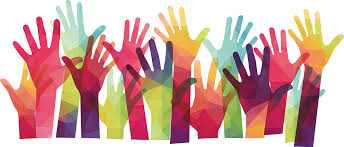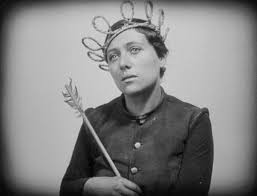
Who Do You Trust?
As a child, I recall being a bit confused about the word “trust.” There was a bank in our town – I believe it was called Empire Trust – and I didn’t understand what trust has to do with banking.
Now, of course, I understand that it has everything to do with it. Aside from federal, state and local laws, we have to trust our bank or we wouldn’t put our money there.
Then there was the popular TV program called “Who Do You Trust?” The show was timed for kids coming home from school but English teachers were aghast at the title, pointing out that it should correctly have been titled “Whom Do You Trust?”
Johnny Carson was the show’s initial emcee and Ed McMahon was the announcer, starting a career-long relationship between the two. Here’s Wikipedia’s description of the show.
More Interviewing Than Quizzing
“Three couples competed on each show, nearly always a man and a woman chosen for their unique backgrounds; the announcer would introduce couples one at a time, and Carson spent more time interviewing the contestants than quizzing them.
“In the quiz portion, Carson would tell the male contestant the category of the upcoming question; the man would then have to decide whether to answer the question himself or “trust” the woman to do so. Three questions were played per couple, worth $25, $50, and $75….”
Besides the prize amounts that appear ridiculously low to people today, it was the man who decided whether to answer or defer to his wife, a condition that rightly wouldn’t be tolerated today. Even the show’s title, “Who Do You Trust,” referred to the male, the one who would be making the decisions.
But the title has a much more subtle and deeper meaning for human beings. It asks a pretty profound question, in fact, one which we ask ourselves frequently regarding a myriad of people. “Should I trust my doctor? The guy who is fixing the furnace? My financial adviser?”
Pivotal Question
Many of us ask, “Can I trust myself?” and sometimes the ultimate question, “Can I, and do I, trust God?” The questions are pivotal in the search for God and for maintaining faith.
Writes author Catherine Upchurch: “We are called to trust that God is with us long before we are called to consent to doctrine. In fact, consenting to the teachings of our faith only makes sense in the context of a trusting, relationship with God.”
The challenges to trust are familiar: fear, doubt and acceptance of uncertainty. The search for God requires patience, what the authors of the psalms call “waiting for God.”
“Above all, trust in the slow work of God,” wrote the famous Jesuit paleontologist, Pierre Teilhard de Chardin, “We are quite naturally impatient in everything to reach the end without delay. We should like to skip the intermediate stages. We are impatient of being on the way to something unknown, something new. And yet it is the law of all progress that it is made by passing through some stages of instability – and that it may take a very long time.
Let Them Grow
“And so, I think it is with you; your ideas mature gradually – let them grow, let them shape themselves, without undue haste. Don’t try to force them on, as though you could be today what time (that is to say, grace and circumstances acting on your own good will) will make of you tomorrow.
“Only God could say what this new spirit gradually forming within you will be. Give Our Lord the benefit of believing that his hand is leading you and accept the anxiety of feeling yourself in suspense and incomplete.”
Can we honestly answer, “God,” to the question, “Who Do You Trust?” You can’t trust a person you don’t know. In God’s case, it seems to me, you can only get there – in the very limited way we can know God – through study and prayer leading to faith.



